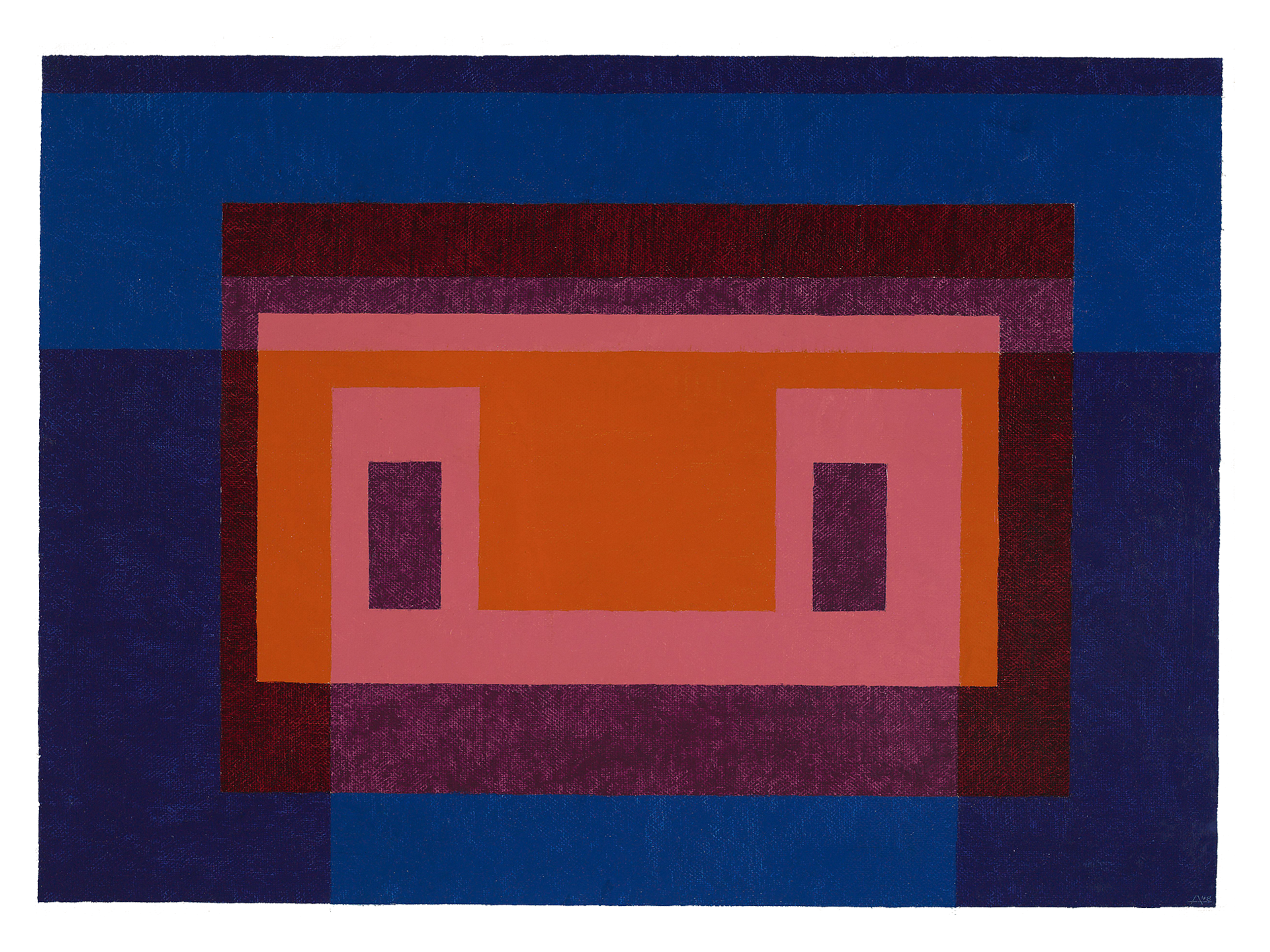Villa Hügel, Essen, Germany
June 2018
June 16–October 7, 2018
Titled after Interaction of Color, the artist’s seminal 1963 handbook on color theory, Josef Albers: Interaction was a major retrospective at Villa Hügel, the home of the Alfried Krupp von Bohlen und Halbach Foundation. The exhibition was curated by Heinz Liesbrock, director of the Josef Albers Museum Quadrat in the neighboring city of Bottrop, where Albers was born in 1888.
Featuring some 170 works, Interaction traced the artist’s career from its beginnings at the Bauhaus to breakthroughs after his emigration to the United States in the early 1930s. Alongside paintings, graphic prints, and furniture, the show included everyday objects, glass works, photographs, and pre-Columbian sculptures collected by Albers and his wife, Anni, during their many trips to Mexico. The main gallery at Villa Hügel showcases Albers’s Homage to the Square series, initiated in 1950, which numbered more than 2,000 paintings by the time of the artist’s death in 1976. Exploring a variety of chromatic and perceptual effects, the Homage to the Square paintings are a sustained, serial investigation into rhythm, mood, and spatial movement within a carefully configured, nested square format. By employing a variety of tones in different combinations, Albers was able to play with perception and produce illusions of translucency. As the artist himself said, "Color challenges me as the most relative medium in art." The show also explores the influence of Albers’s work and teaching on Minimalism during the 1960s.
A collaboration between the Kulturstiftung Ruhr, Essen (Ruhr Arts Trust) and the Josef Albers Museum Quadrat, this retrospective celebrates the fiftieth anniversary of the Alfried Krupp von Bohlen und Halbach Foundation. Interaction is the latest in a number of global exhibitions celebrating the work of Josef Albers and his wife, Anni, in 2017–2018. Other exhibitions include Josef Albers in Mexico at the Peggy Guggenheim Collection in Venice, where it traveled following its critically acclaimed debut at the Solomon R. Guggenheim Museum in New York; the show explored the crucial influence of Mesoamerican art and monuments on the artist’s abstraction. Anni Albers is an extensive retrospective taking in the full range of the artist’s pioneering career, from intricate small-scale works to complex wall hangings and the unique textiles she designed for mass production. Following its debut at Kunstsammlung Nordrhein-Westfalen (K20 Grabbeplatz) in Düsseldorf, the show travels to Tate Modern this fall, opening October 11.
